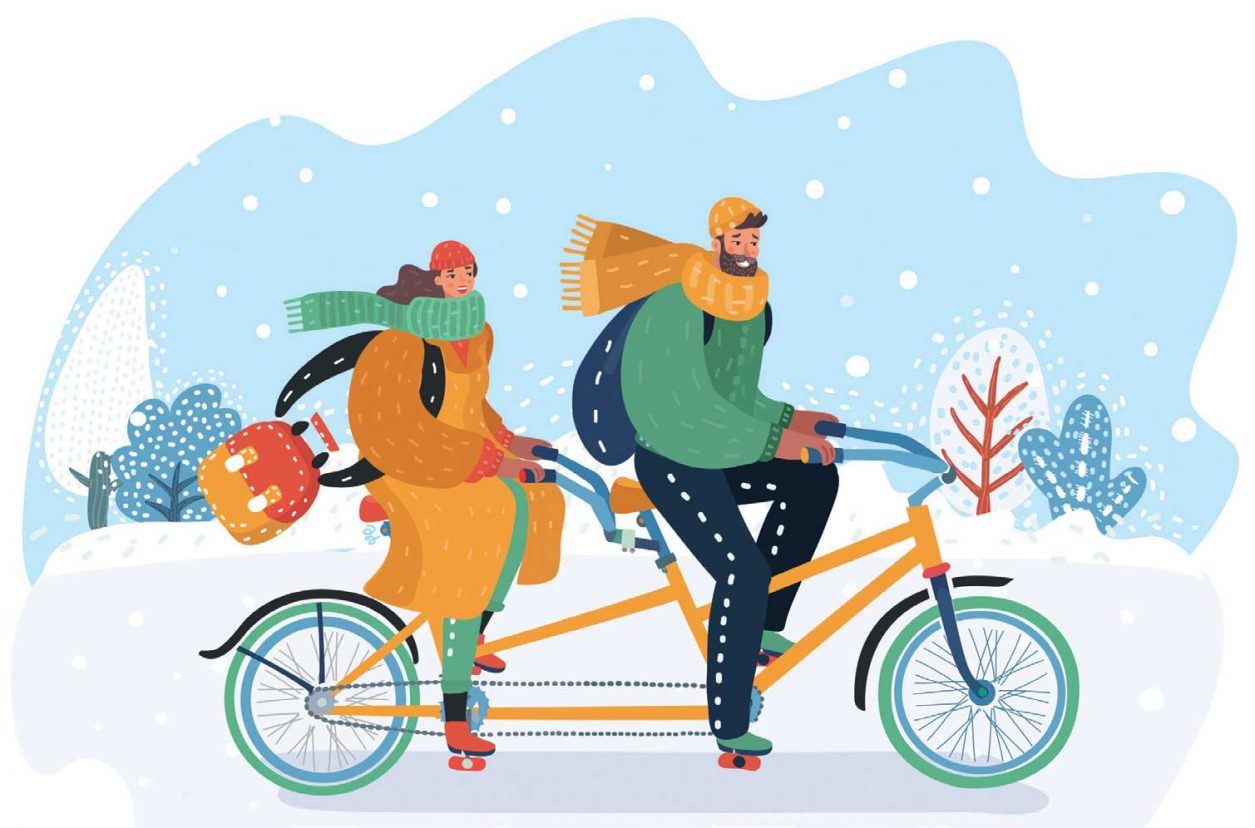What brings couples together—and what keeps them enjoying being together long term? This varies from couple to couple, and usually happens unconsciously. However, there seems to be 7 major paths of interaction that couples travel, more of one than another at a given time, and often shifting over the course of many years.
For instance, the first path is the one that, in modern western culture, brings many couples together in the first place:
Sex: The powerful magnetism of sex is often the spark that attracts people to each other, especially with younger “coupling.” And, in some cases, if a couple has great sex, it may be the primary bond that keeps them together over time, even if not many other things in their relating seem to click very well. There may even be a fear in one or both partners that if their relationship should end, “I may never have sex (or great sex) ever again.” I’ve seen this keep seemingly incompatible and largely miserable people together, sometimes literally “until death do they part.”
While a good, healthy sex life can bring couples together and help them stay together, for other couples (particularly more “mature” ones) sex may be a less important or even irrelevant factor in what might be a mutually wonderful relationship.
These people will place a higher priority on one of the other paths, such as:
Partnership: This is the most pragmatic path of relating, and possibly the one that most couples spend most of their energy as a couple involved with. It’s the dayto- day sharing of life’s responsibilities: Figuring out shared finances, duties, dreams, plans, etc. It may even extend to sharing a business together, building a house together, moving, throwing parties and hosting guests. It’s all the day-to-day minutiae of who handles what and when.
Don’t minimize the importance of this path just because it’s the most earthy and practical. For many couples the quality of partnering together is the most satisfying and most important connection they have. I remember how impressed my wife’s parents were when they came to visit us four days after we moved from New York to North Carolina, and the house was not only liveable, but already felt somewhat like a home. Yes, we partner very well together.
There’s one component of partnering that is so important that I give it its own path:
Co-parenting: Obviously, this path is generally most profound for younger or middle-aged couples raising children. However, the give and take that is required in caring for pets creates an opportunity to share this path for couples of any age. For many couples the fruits of co-parenting provide some of the greatest joys of their lives—while for others it creates some of their deepest conflicts. If couples are on a similar page around how to parent their children (or pets) this shared experience can create an amazing sense of support, almost bordering on the “heavenly.” For the couples who differ greatly around this, it can feel like Hell.
While these two parts of partnering involve a lot of “doing” and responsibility, this next path involves the entirely opposite direction:
Playmates: Sadly, this is perhaps one of the most overlooked and forgotten paths for many couples. I don’t think it starts off this way, but eventually the responsibility end of relating (parenting, bill-paying, etc.) can come to dominate a couple’s relating to the point where they forget to have fun together.
I’ve also seen some couples who play so well together that it compensates for deficits in some other paths of their relating. They might enjoy movies, dancing, making or enjoying music, cooking, playing tennis, boating, golf, bridge, disc golf or even bowling. They’re so good at creating time to be together that they don’t need to be reminded to schedule “date nights.” Remembering to play together is crucial to a couple’s long-term health and satisfaction.
Re-creation gives both partners a chance to feel alive, youthful and connected to Spirit and thereby to each other. It also helps to rekindle and remind them of some of the initial reasons they chose to be with each other.
The fifth path I have some reservations about:
Spirituality: Some couples I’ve met have had a profound spiritual connection or shared a love for a spiritual activity that was a powerful connection for them. The problem I have seen is that many couples who share this path rely so much on the spiritual connection that they might ignore the other paths altogether. This will also be true for most other couples whose connection stems from a single conduit, be it: Nature, sports, activism, art, meditation, exercise, etc. If there isn’t a solid connection in at least a few other paths, in most cases these relations will be short-lived.
Path #6: Companionship
While this path may seem to some to be more shallow, the need for and the appreciation of companionship should not be minimized—especially as we get older. While loneliness is rampant in our culture, it’s especially profound among our elders. To have someone to share even some of our daily activities with, to talk to, take walks with, show affection to, share a movie or watch TV with, can mean so much to us. And for many it’s nice to have someone to share a bed or bedroom with. As someone told me recently, “Snoring is god’s way of letting us know we’re not alone.”
Most people find it comforting to know that someone else is there in case something happens to us. When the grown children of elders don’t recognize the importance of and need for companionship, it can lead to disappointment and potentially ugly legal battles if the parent passes and the children find out that their parent’s will has been updated to reflect their appreciation for this new companion….
I’ve saved the path that is personally most important to me for last:
Best Friends: Before I go any further I want to make clear that this is a generational path and may not be as much of a priority to some older couples—but it is for me! It’s very important to me that the person I share my life with is my best friend; my closest confidant, advisor, pal, buddy– probably the most important person in the world to me. Osho, my favorite spiritual teacher, says, “Relationship is the highest peak of friendship.” The day I heard that, my whole perspective on relating changed.
I frequently ask myself, “How good a friend am I being to Connie right now?” “Is there anyone else that I would lay the expectations, disappointments and resentments, etc. on, that I’m laying on her?” Admittedly, the answer sometimes comes back a resounding “no.” This creates an opportunity for me to come back to being with her in more the ways I prefer: Fun, loving, gentle, accepting, compassionate, generous, supportive, considerate and respectful, to name a few. How do you want to treat the most important person in the world to you?
Sometimes in my work with couples I will name these seven paths and ask them to rate how well they feel they are doing in each of them on a scale of 1-5. The answers are often surprising to one or both of them. This provides a greater awareness of their strengths as a couple, as well as a blueprint for areas that might warrant more attention in order to create more fulfillment, satisfaction and joy in their relating. It’s also a good exercise to check in with every few years or so as our lives, bodies and needs shift and hopefully, evolve.
 Vijay Director has been a life consultant/coach for over 25 years. He specializes in communication, relationship and business issues, as well as facilitating deep emotional release. He is also celebrating his 30th year of leading support groups for men. 828.664.0000.
Vijay Director has been a life consultant/coach for over 25 years. He specializes in communication, relationship and business issues, as well as facilitating deep emotional release. He is also celebrating his 30th year of leading support groups for men. 828.664.0000.

















